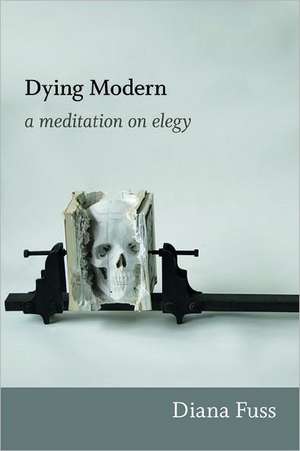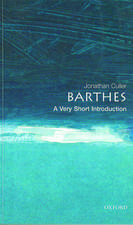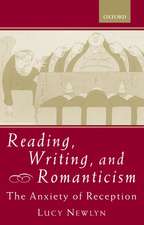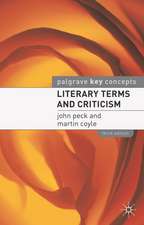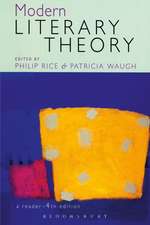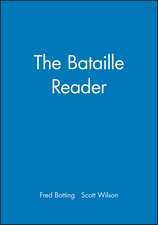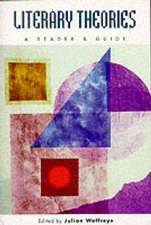Dying Modern – A Meditation on Elegy
Autor Diana Fussen Limba Engleză Paperback – 11 apr 2013
Preț: 143.55 lei
Nou
Puncte Express: 215
Preț estimativ în valută:
27.47€ • 28.38$ • 22.85£
27.47€ • 28.38$ • 22.85£
Carte disponibilă
Livrare economică 27 februarie-13 martie
Livrare express 12-18 februarie pentru 18.40 lei
Preluare comenzi: 021 569.72.76
Specificații
ISBN-13: 9780822353898
ISBN-10: 082235389X
Pagini: 160
Dimensiuni: 150 x 250 x 15 mm
Greutate: 0.2 kg
Editura: MD – Duke University Press
ISBN-10: 082235389X
Pagini: 160
Dimensiuni: 150 x 250 x 15 mm
Greutate: 0.2 kg
Editura: MD – Duke University Press
Recenzii
"Dying Modern is terrific. To have achieved so much in such a short, brisk, and eminently readable book; to have recovered such fascinating subgenres and thought through their interrelations; to have returned to the well-worn terrain of the elegy and come up with fresh insights and inventive readingsthese are remarkable accomplishments."Jahan Ramazani,author of Poetry of Mourning: The Modern Elegy from Hardy to Heaney
"Celebrating poetry's power to bring anything, even death, to life, Diana Fuss's Dying Modern reanimates the elegy for our time. Bringing out the ethical call that echoes throughout the form, her voice becomes the perfect guide to the vanishing voices that elegy creates, preserves, and displaces at once. After reading this wonderful book you'll agree: death never had it so good."Lee Edelman, author of No Future: Queer Theory and the Death Drive
"Diana Fuss's exceptional meditative essay, Dying Modern, is a subtle Keatsian inquiry into the irresolvable, and therefore generative, tensions between genre and mode, and between historical contingency and the constancy of ethical commitments."Max Cavitch,author of American Elegy: The Poetry of Mourning from the Puritans to Whitman
In Dying Modern, Diana Fuss says her meditation on elergy seeks to answer this disquieting question as she considers the relationship between the elegiac interlocutor and his or her audience. Fuss focuses on three different types of voice the dying, reviving and surviving in the three main chapters into which this brief study is divided.... As her title suggests, Fusss focus is mainly on modern poetry, but she situates this in the rich loam of nineteenth-century poems of death and dying. Her title is also misleading, since the poems to which she turns her incisive critical attentions are not really elegies per se but rather poems that operate on the fringes of that genre.... In the course of her elegant meditation, she makes several striking points. For example: last words have become increasingly banal in the modern era owing to the anaesthetized haze of modern death; there are remarkably few Holocaust poems that allow the dead to speak for themselves; and the departed beloved never does return in the world of the aubade. - Sally Connolly, Times Literary Supplement, April 26th 2013
"Celebrating poetry's power to bring anything, even death, to life, Diana Fuss's Dying Modern reanimates the elegy for our time. Bringing out the ethical call that echoes throughout the form, her voice becomes the perfect guide to the vanishing voices that elegy creates, preserves, and displaces at once. After reading this wonderful book you'll agree: death never had it so good."Lee Edelman, author of No Future: Queer Theory and the Death Drive
"Diana Fuss's exceptional meditative essay, Dying Modern, is a subtle Keatsian inquiry into the irresolvable, and therefore generative, tensions between genre and mode, and between historical contingency and the constancy of ethical commitments."Max Cavitch,author of American Elegy: The Poetry of Mourning from the Puritans to Whitman
In Dying Modern, Diana Fuss says her meditation on elergy seeks to answer this disquieting question as she considers the relationship between the elegiac interlocutor and his or her audience. Fuss focuses on three different types of voice the dying, reviving and surviving in the three main chapters into which this brief study is divided.... As her title suggests, Fusss focus is mainly on modern poetry, but she situates this in the rich loam of nineteenth-century poems of death and dying. Her title is also misleading, since the poems to which she turns her incisive critical attentions are not really elegies per se but rather poems that operate on the fringes of that genre.... In the course of her elegant meditation, she makes several striking points. For example: last words have become increasingly banal in the modern era owing to the anaesthetized haze of modern death; there are remarkably few Holocaust poems that allow the dead to speak for themselves; and the departed beloved never does return in the world of the aubade. - Sally Connolly, Times Literary Supplement, April 26th 2013
Notă biografică
Cuprins
Acknowledgments ix
Introduction 1
1. Dying . . . Words 9
poetry 10
consolation 12
defiance 20
banality 24
newness 31
lastness 35
2. Reviving . . . Corpses 44
comic 46
religious 50
political 57
historical 61
literary 67
poetic 73
3. Surviving . . . Lovers 78
loving 82
waiting 86
leaving 90
refusing 95
existing 98
surviving 102
Conclusion 107
Notes 113
Bibliography 131
Index 141
Copyright Acknowledgments 149
Introduction 1
1. Dying . . . Words 9
poetry 10
consolation 12
defiance 20
banality 24
newness 31
lastness 35
2. Reviving . . . Corpses 44
comic 46
religious 50
political 57
historical 61
literary 67
poetic 73
3. Surviving . . . Lovers 78
loving 82
waiting 86
leaving 90
refusing 95
existing 98
surviving 102
Conclusion 107
Notes 113
Bibliography 131
Index 141
Copyright Acknowledgments 149
Descriere
In Dying Modern, one of our foremost literary critics inspires new ways to read, write, and talk about poetry.
